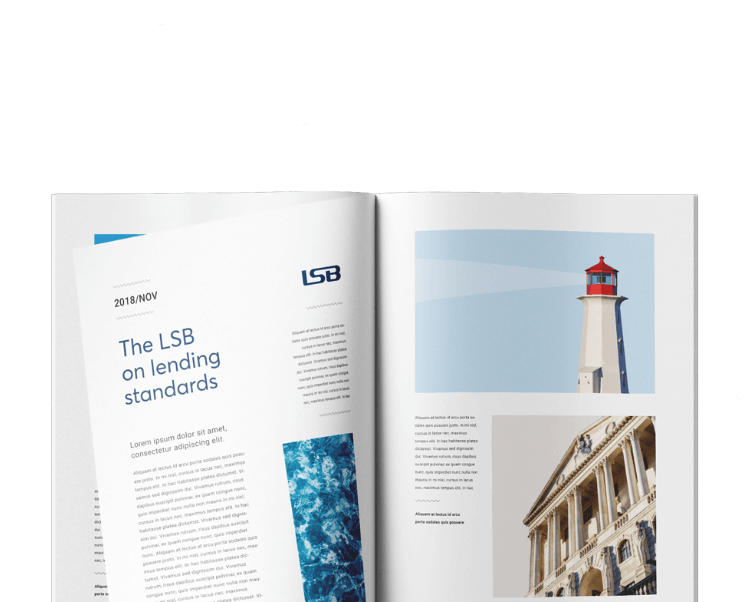Ever since we started to focus on SME lending about two years ago, I have been struck by the energy and enthusiasm of individuals who play a part in this critically important area. Whether it be lenders, funders, consumer groups representing the sector, regulators, government departments, professional bodies, commentators or journals, they all seem passionate about improving standards and there is a lot of common ground. It’s also clear that there are many issues to discuss and resolve. However, while we may be setting out on a long and difficult journey, it feels as if we, at least, have a very solid foundation on which to build.
The LSB staged an event in London yesterday (19 June) marking roughly a year on from the launch of the Standards of Lending Practice for business customers. Our keynote speaker, very topically, was Paul Uppal, the government appointed Small Business Commissioner, who outlined his role and set out the scale of the problem faced by SMEs with the late payment of invoices by suppliers. The figures are eye watering and there was a consensus in the audience that, where we can, we should support Paul in his mission to tackle late payment and eradicate unfavourable payment practices. Collectively, I believe we can make progress with this, and, while this will need some careful thought, I am keen that the LSB plays its part in whatever way it can. Both our registered firms, who are impacted when SMEs can’t repay their borrowing due to late payment of invoices, and those SMEs, who end up in financial difficulty or become vulnerable because of lack of cash flow from unpaid invoices, will gain from this.
This was a significant day for the LSB in other ways. When we launched the business Standards last March, we still operated in our traditional territory of credit cards, loans and overdrafts, albeit at an increased threshold of £6.5m turnover (up from €2m). We stressed at the time that we would look to extend scope and we’re very excited to announce the launch of Standards of Lending Practice for asset finance products offered to small businesses, as well as adding commercial mortgages to the products captured by the business Standards last March. These additional products provide more extensive protection to SMEs borrowing from our registered firms and should help achieve greater consistency for customers. It also strengthens the voluntary self-regulation regime.
Our firms will now have until 30 September this year to undertake a gap analysis to assess which Standards are being met, and where further work is needed. The LSB will be working with our firms, as we did when we launched the business Standards last year, to support them through this process. The Standards will apply to the new products from 1 October this year, at which point we will indicate which Standards will require an implementation period due to further work being required by firms to be able to demonstrate they are meeting them.
I took the opportunity yesterday to announce some other key initiatives and developments. One of the areas we have discussed internally is messaging, and what are our core themes. Our actions going forward will all be underpinned by the three key messages of Trust, Collaboration and Fairness bringing together the three key groups of firms, stakeholders and customers – helping to rebuild trust between firms and customers; collaborating with our stakeholders to improve standards; and delivering fair outcomes for customers. Ultimately, this should inspire confidence in lenders and funders, build an effective community of organisations challenging and supporting these firms, and hopefully enabling SMEs to thrive. Don’t let us forget the number – 5.7m SMEs in the UK economy employing 60% of the private sector. I will be saying more about trust, collaboration and fairness in future blogs and they will also feature strongly in forthcoming industry events.
I mentioned yesterday that complacency is fatal. You cannot stand still otherwise events overtake you and you are playing catch up; by this stage it can often be game over. And so, with that in mind, we will continue to push the SME agenda and look to develop other areas where we feel self-regulation, underpinned by independent oversight, can add value. A number of possible areas were mentioned yesterday including invoice finance, especially given the major issues outlined by Paul Uppal on late payment of invoices, and peer to peer lending. We also highlighted the lending appeals process which many of the larger lenders sign up to, and which forms part of the Standards, the principles for larger businesses, which capture lending to business up to £25m, and the Institute for Turnaround principles, which complement the Standards in the area of financial difficulty. I can confirm that we will have a development programme in one or more of these areas running from October and we will publish our plans in the summer.
Two final points before I sign off. Firstly, in line with our focus on collaboration, we will be launching jointly with the Money Advice Trust our research report on the impact of vulnerability on SMEs on 19 July. Secondly, my thanks on behalf of everyone at the LSB for the continued support we receive from firms and our wider stakeholder community, and specifically for the members of the asset finance working group, without whom we wouldn’t have been able to launch yesterday!









